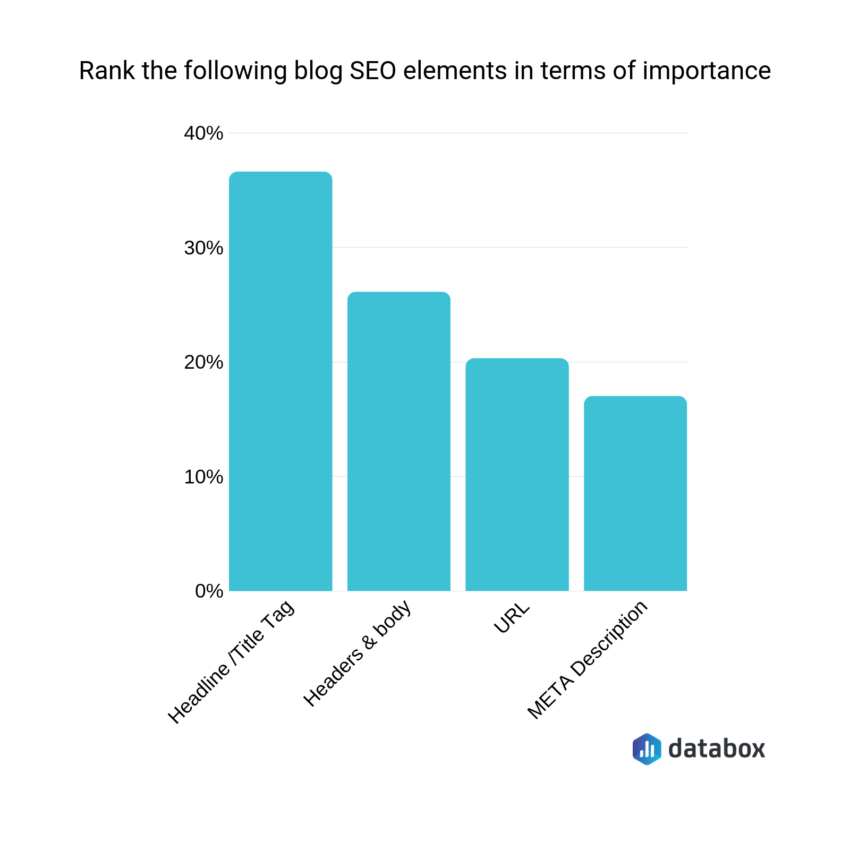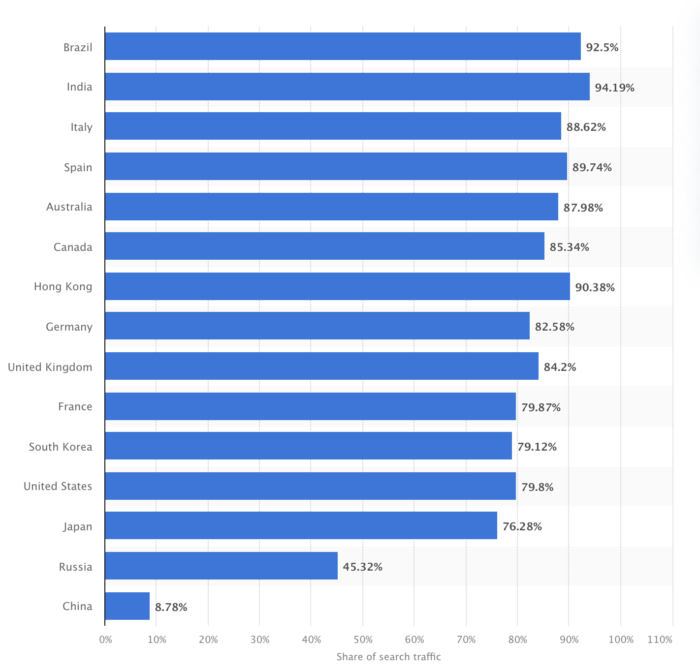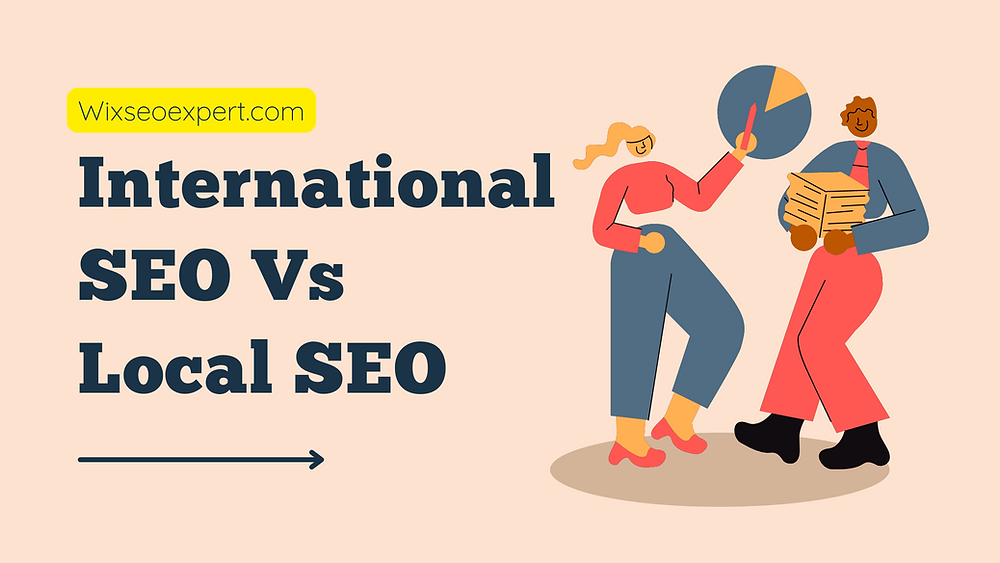This also includes an analysis of the local services available to each audience, and the corresponding local classification (which will surprise you). It is not enough to point out that these relatively small and very local competitors can be completely different across regions.
In other words, you need local language and local marketing experience not only to translate your content, but also to conduct competitor research. You need to understand the environment and culture in which you are moving, and that goes beyond translation.
All of these aspects provide the most valuable information for your strategy in each location; inspect your content for the relevant market, and be honest with yourself: Is it really the right approach?
Let’s see how there are different priorities across cultures, even when looking for just one “dress”.
We compared the five main short- and medium-term keyword rankings used in Portugal and Germany (Semrush rounds out absolute numbers so they seem to be the same at different levels. Also note the different country sizes, hence the different volume scales):
A Video Is A Video Is A Video? No – Do Your Glocal SEO First!

Suppose your local expert gave me views that indicate that you need more video content: Don’t get in your cart and convert your written content into bits of text that move across the screen.
Instead, do an in-depth study of which video formats work well for each of your target market: can they be text-based, or does your regional audience prefer human interaction? What should be the dress code for the protagonists? Maybe you need local actors?
Would you rather have a region that requires high-interactivity video formats, such as instant comments, live on-screen, for example, in China?
Do you need to put it directly, taking advantage of the opportunity for flash sales? Or can you better classify yourself with instructional videos that are directly related to your products?
The same in-depth local analysis should be done for each format that is more valuable to your target group, in each location.
Consider How Audience-Specific Channels & Content Formats Are

Keep in mind that you always need to change how you take advantage of different channels and content formats when you go international. Again, home marketing knowledge may not apply abroad.
How you present your blog post to your audience also depends on their preferences: Do you respond to a market that needs a lot of visual support?
If so, would they prefer to connect through photos of identifiable people, for example, or would they prefer the logical support of diagrams? What are the cultural implications of certain colors?
Do they need information presented in a very “digestible” way, such as points of attraction, or do you need deep reasons to gain their trust?
Are they rooted in a competitive society that is committed to efficiency by respecting the Top Ten / Five / Three lists?
Do they easily relate to the information when they come in person through an interview? Which tone do they prefer: formal? Or do you naturally get confused by an informal approach?
Glocal SEO means treating each region and audience as unique.
Localization experts can help you understand how your audience interacts with different channels and formats in your target locations, even if there are different cultural differences and different areas of digital marketing to consider. That’s why you need localization experts, not just translators.
Glocal SEO Needs Both: Technology & Local Expertise

All related questions can be answered with data; but an expert is needed to filter everything that is important, to interpret it well, and to make the findings a successful local content.
The right technology is needed; Semrush is just one example. But don’t be fooled: no one is smarter than the one who uses technology. Here real experts can shine.
Thanks to their local cultural perspective, they will:
If your product line is highly specialized, make sure your local SEO specialist knows your product range as well! The same goes for local linguists who will recreate your content for each market.
Why Glocal SEO Needs A Say In Your Technical Approach

The technical approaches also differ from region to region. In some Asian markets, for example, your website may be completely redesigned with micro-sites integrated into major local portal applications.
Other places require your applications; often as an additional option, other times as an alternative. It all depends on your sociological target group, its location, and the individual combination of your product.
The Wrong Payment Method Can Cost Your Business

Last but not least, the content and channel are perfectly localized, and you can’t create sales if you don’t fit in as well as your payment options! Believe it or not, neither MasterCard nor Visa works everywhere.
There are countries where you don’t even have to think about creating sales without being integrated into the payment options of home portals that take your content. Application payment has become almost mandatory in many countries, but which system does your local target group trust?
Many viewers are very specific about the payment services they use. Some of them will not accept anything other than purchase on account!
Just as adapting to local payment habits is essential for localization and overall business, internal SEO departments can easily be overlooked.
Glocal SEO Is A Matter Of Experts
The in-house SEO team does a great job with the most skilled SEO experts in the home market.
But when it comes to cross-border, there is no one-size-fits-all approach. Even the most perfect native strategy needs to be tailored, especially for each market.
For your SEO, this means that when you go international, you need to go local. With local SEO experts.
That’s global SEO. Experience and a worldwide network are needed. Get the best experts included – get the best ROI from your hard work!
Quelle formation SEO choisir ?
It is therefore not surprising to find SEO courses in courses dedicated to web marketing. Digital marketing courses are bac au bac + 2 + 2 diplomas, especially general marketing diplomas that will allow you to master the basics.
Choose a comment son consultant SEO? Connaitre son project selection expert SEO tailored
- Search for keywords to rent and be competitive.
- Content creation.
- Write blog posts.
- Audit Fair.
- Create links and implement a backlink strategy (learn the theme, shape and size)
C’est quoi un article SEO ?
Article writing SEO (Search Engine Optimization) is an act of writing text content for publication on the web, thus optimizing natural references in an optimized way.
Pourquoi le SEO est important pour les entreprises ?
SEO brings visibility Work natural SEO by choosing keywords relevant to your business and your business ensures you are visible to people of interest for your product or your services.
Pourquoi avoir un bon référencement ?
Good SEO: what’s the point? Your website is ranked first on the Internet by Google. A quality reference is therefore an effect of an increase in visibility machining, frequency. “More than 94% of French Internet users type their queries on Google.fr!” »
Why is reference important? The natural reference is the real advantage of the communication car, it is well executed, it can create a significant traffic rate. People who visit your site are potential customers. It’s a good reference, so it’s a strong campaign for communication. And remember it’s free.
Pourquoi améliorer le SEO ?
Le SEO allows qualified traffic to your website so that your content on the internet matches your current visitor search. L’object du SEO is that they improve the trust and Google internautes agree. This actually translates into better search engine visibility.
Pourquoi le SEO est important pour les entreprises ?
SEO brings visibility Work natural SEO by choosing keywords relevant to your business and your business ensures you are visible to people of interest for your product or your services.
Pourquoi optimiser le SEO ?
This technique can link the natural reference, improve the visibility of a site and increase traffic. Specifically, an SEO-optimized site is more likely to represent a site that is not optimized by SEO in the first few pages.
Pourquoi un blog SEO ?
The purpose of a blog in an SEO strategy is to position you with interesting keywords for you and to guide the internet user where you want them. Internal email has a big power advantage over backlinks.
Pourquoi améliorer un site web ?
The redesign of your site will be an opportunity to review the technical aspect but also the semantic field, marketing, ergonomics, content strategy … which will give all the keys to a good SEO (in any case to current time) to your site.
Pourquoi utiliser le référencement naturel ?
It is a natural reference in the results of the research you want to position the solution well. Indeed, it is a strategy that allows you to target relevant, available and hired keywords, then take various leverage actions to surpass your competitors.
Pourquoi utiliser le référencement payant ?
Paid SEO (SEA) allows you to quickly increase your class based on the budget provided on search engines. Develop a natural referral strategy (SEO) to ensure the visibility of your website.
Pourquoi le SEO est important pour les entreprises ?
SEO brings visibility Work natural SEO by choosing keywords relevant to your business and your business ensures you are visible to people of interest for your product or your services.
What is an example of SEO?
Businesses are looking for search engine optimization or SEO to help them become more aware and higher in their search engine rankings. SEO is used by search engines like Google, Yahoo, MSN, Bing and so on.
What is SEO and how does it work? If so, SEO means ‘Search Engine Optimization’, which is the process of getting traffic from free, organic, editorial or natural search engine results. Your website aims to improve your position on search results pages. Remember, the higher the website, the more people will see it.
What is SEO of a website?
SEO – Search Engine Optimization: The process of making your website better for search engines. As well as the job title of a person who makes a living from this: We just hired a new SEO to improve our online presence.
Can I SEO my own website?
You can do SEO or DIY SEO (Do It Yourself SEO). With a little research and a lot of practice, anyone can learn how to do SEO for their business. A quick way to get started with SEO is to enter your URL here and then focus your SEO efforts on the recommended action items.
How is SEO done?
SEO works by making some changes to the design and content of your website that make your website more attractive to a search engine. You do this because the search engine will show your website as the best result on the search engine results page.
What is SEO and examples?
Businesses are looking for search engine optimization or SEO to help them become more aware and higher in their search engine rankings. SEO is used by search engines like Google, Yahoo, MSN, Bing, etc. Search engine optimization uses keywords that attract the user to the business.
What is SEO in simple words?
SEO is search engine optimization, which is a set of practices designed to improve the appearance and placement of web pages in search results.
What is SEO in easy language?
Search engine optimization (SEO) is a process of improving the quality and quantity of website traffic from search engines to a website or website. SEO focuses on unpaid traffic (known as “natural” or “organic” results) rather than direct traffic or paid traffic.
Comment faire du référencement naturel gratuit ?
Free natural reference. Unreferenced Google’s website is an indexer. You don’t really need to pay for this. Your site needs to be known on Google: Search Console.

